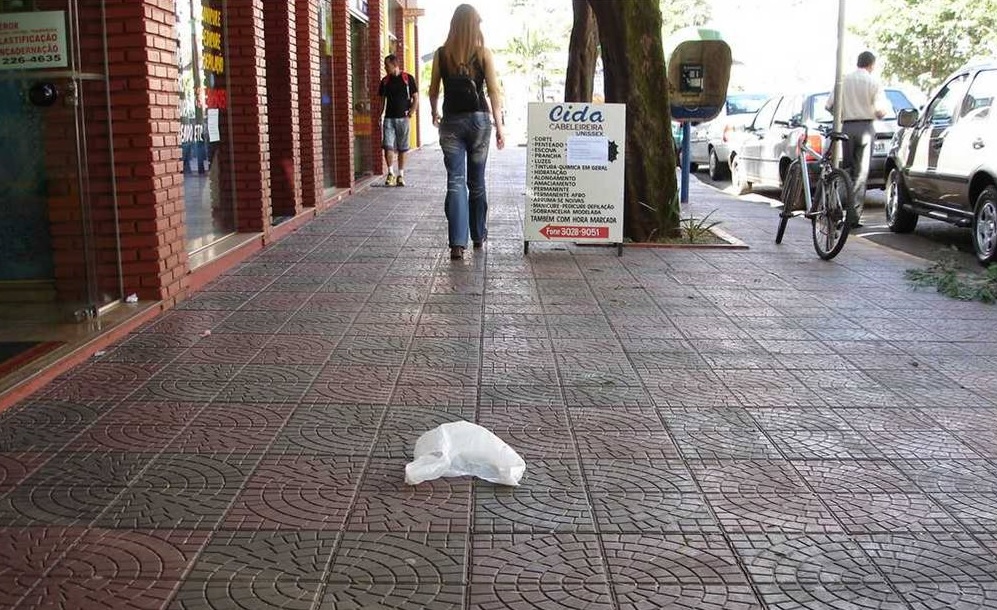Entrevista concedida pela FUNVERDE para a revista HM! sobre as malditas sacolas plásticas de uso…
Pakistan – Prohibition of non-degradable Plastic Products (Manufacture, Sale and Usage) Regulations 2013
Press Brief – Press Conference of Minister for Climate Change – Prohibition of non-degradable Plastic Products (Manufacture, Sale and Usage) Regulations, 2013
Pakistan Environmental Protection Agency (Pak-EPA), with the approval of the Ministry of Climate Change and after obtaining consent of the Law and Justice Division, notified a Regulation prohibiting manufacture, import, sale and use of non-degradable plastic bags and other plastic products in the limits of Islamabad Capital Territory, effective from April.
2. This landmark step taken by the Ministry of Climate Change will have long term benifits to control spread of waste plastic bags and enable exporters to comply with the environment-friendly packaging demanded in the international market. Many countries in Asia, Europe and America have successfully controlled plastic waste by introducing oxo-biodegradable plastic technology. The technology is simple which neither needs alteration in machinery nor in the process. A small quantity of olefin based additive (1-3%) is mixed with the raw material (granules) to develop biodegradable properties in plastic. Plastic bags made with this technology if left in open air or water absorb oxygen; gradually weakens internal bond of plastic material thereby allowing biological degradation to take place. Finally the bag will vanish leaving behind humus (a non-toxic product). The plastics have extensive usage in packaging of food, beverages, cigarette, leather, textile, electrical/mechanical machinery and components etc. Now, it is also being used in agriculture as mulches and in forestry for saplings. If use of non-degradable plastic continues, it will create havoc due to poor waste collection in the country. Ministry of Climate Change will therefore coordinate with the provincial Governments to introduce degradable plastics by following the suit.
3. In 2004, Pak-EPA on the direction of the Pakistan Environmental Protection Council, conducted a national study on plastic bags, which revealed that about 55 billion bags were being manufactured and consumed annually in the country with an annual growth rate of 15 %. The annual average consumption of plastic bags was estimated at 397 bags per person, i.e. 1 bag per head per day. It was mentioned that if this trend continued, the consumption of plastic bag will reach to 112 billion by year 2015. The report observed that more than 8000 plastic bag units were operating in different parts of the country majority of which were in Lahore (6,000), Karachi (1,200), Peshawar (300) and Faisalabad (230). About 200,000 people directly and 600,000 people indirectly were associated with this business. The report considered different options to deal with the plastic bags issue, which included complete ban on plastic bags; or introduction of photo- degradable plastic bags; Hydro-soluble plastic bags; and ox-biodegradable bags.
4. The National Assembly of Pakistan also passed a Resolution on 22nd April, 2008 that the government should take steps to ban use of plastic shopping bags and instead bring in use the degradable shopping bags. In compliance, the Ministry devised a two-prong strategy to deal with the issue of plastic bags namely:
i. Launch a campaign “Say No to Plastic Bag” aiming at reducing usage of plastic bags and discouraging habit of using excessive quantity of plastic bags.
ii. Introduce technology making plastic degradable so that the waste plastic bags vanish if left un-collected.
The campaign “Say No to Plastic Bag” was run successfully as a result of which large stores Metro Cash & Carry introduced cotton bags with slogan on them “Say No to Plastic Bag” and McDonald’s started using paper bags instead of plastic bags. However, due to lack of resources, the campaign could not be continued.
5. The Ministry of Environment (Defunct) held series of meetings with Plastic Bag Manufacturers Association, users and exporters to work out a solution to deal with the issue. The consensus reached on oxo- biodegradable bag technology.
6. With a view to promoting this technology in the country, Pak-EPA approached local and multinational companies and users to promote oxo-biodegradable plastic bags in the country. The Lahore and Karachi Chamber of Commerce held workshops on biodegradable plastics to create awareness among entrepreneurs. Because of these efforts, a number of users like; Dawn Bread, KFC, McDonald’s, Hyper Star, Sazgar, DHA, ICI Polyester, MENUE etc. have started using oxo-biodegradable plastic bags as part of their social responsibility.
Fonte – Governo do Paquistão de 23 de janeiro de 2013




Este Post tem 0 Comentários